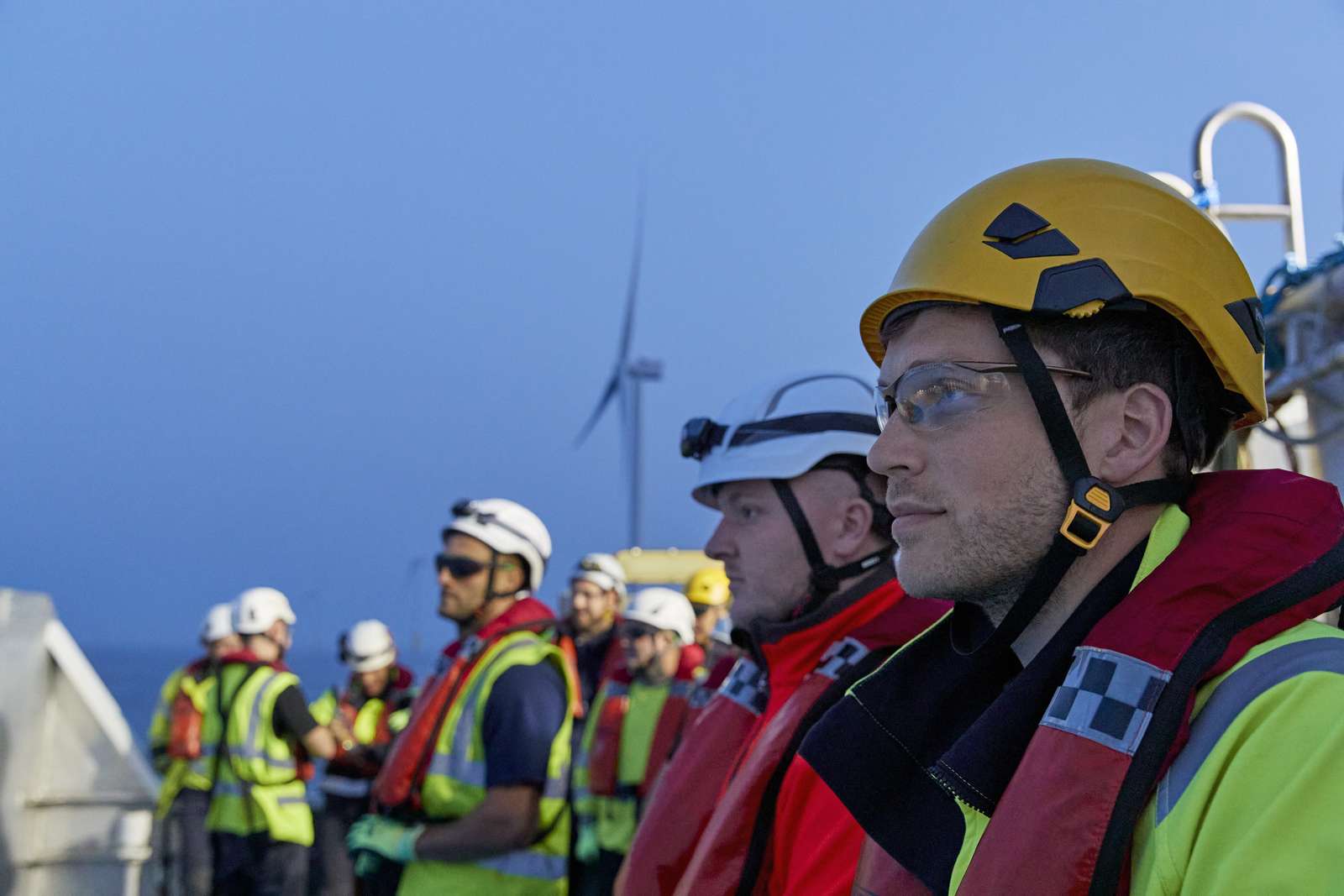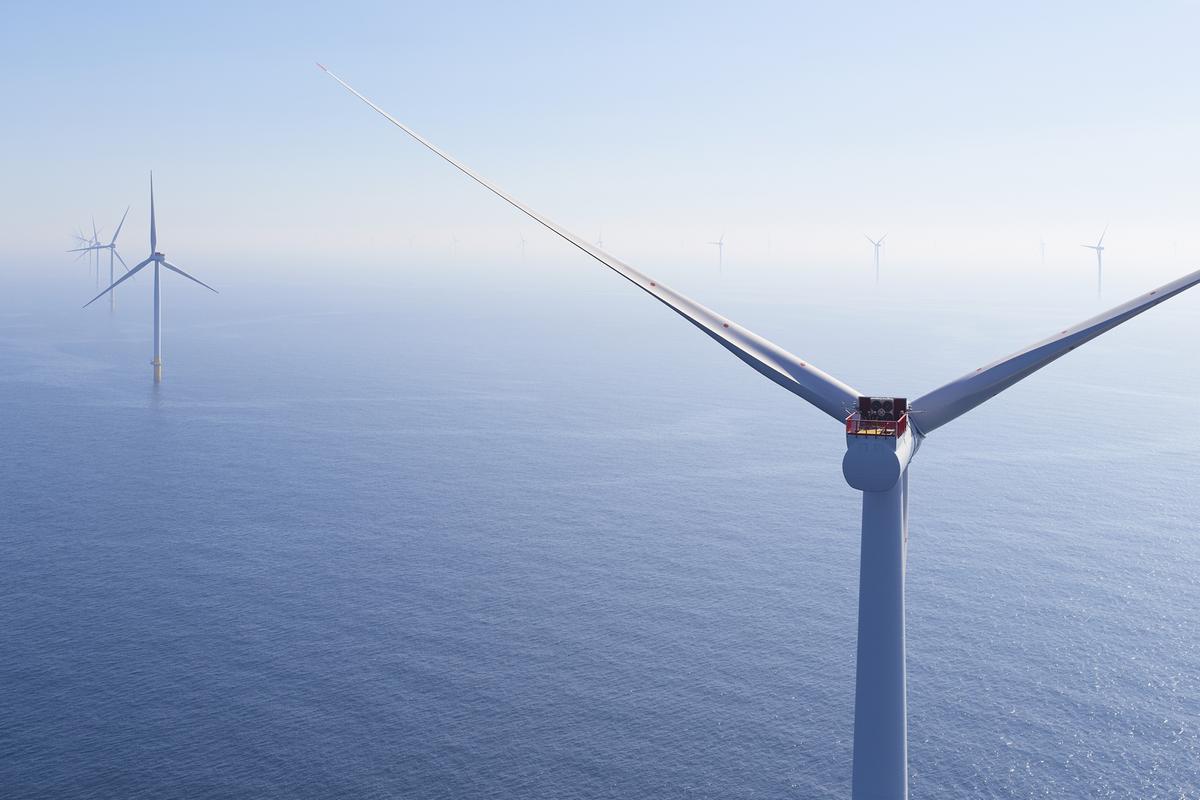How the UK can unlock the opportunities of the global expansion of offshore wind
Duncan Clark, Head of Ørsted UK & Ireland
| Ørsted
The UK is already an offshore wind trailblazer, but as Duncan Clark, Head of Ørsted UK & Ireland writes, getting industrial policy right is critical to unlocking the economic benefits of a global industry.
The success of the offshore wind industry in the last decade is something that the UK should be proud of and celebrate.
We are home to the world’s largest offshore wind farms, including Ørsted’s very own Hornsea 1 and Hornsea 2; the industry is already generating over 15% of the UK’s electricity from UK offshore wind farms; and we have collectively developed a sector that already supports 30,000 jobs. To achieve this, billions of pounds have been mobilised and invested in the UK economy, £15 billion of which has come from Ørsted alone, and we recently committed another £8 billion to build Hornsea 3. By 2030 offshore wind will be generating around 60% of the UK’s electricity.
Whilst it is good to take a step back and celebrate a genuine UK success, policy makers and industry should now be asking the questions: What does the next stage for the sector look like? What will success look like for the offshore wind sector and UK supply chain a decade from now? What levers does Government need to pull now to ensure that success?
With growing ambition for offshore wind around the globe, the global supply chain must expand to three to four times its current size. This provides a huge opportunity. The UK needs to give itself the best chance to access this opportunity and service the expanding domestic, European and global market in both seabed-fixed and floating offshore wind. To achieve this we must do three things.
Firstly, we must support our existing supply chain in the UK. We sometimes forget that the UK already has a substantial supply chain for offshore wind. Companies like Siemens Energy in Hull and JDR Cables in Blyth, both of which are expanding, demonstrate the UK’s domestic manufacturing capabilities. Building on and growing the existing supply chain should be the starting point for any future industrial policy. For example, Ørsted has placed major contracts with over 230 UK suppliers in the last few years and it is important that these companies are nurtured and supported.
Secondly, if the UK is going to gain the maximum economic benefit from the global growth of offshore wind, we will also need to attract investment in new or upgraded manufacturing facilities. To attract this investment, the UK business environment has to be attractive. We have to invest in ports and other infrastructure, create the right business environment, and have a coordinated approach to supporting companies that want to invest in the UK.
 The UK’s offshore wind industry supports 30,000 jobs.
The UK’s offshore wind industry supports 30,000 jobs.
We, as an industry, have often talked about the importance of a strong flow of new projects in the UK to attract new investment in the supply chain. And this volume plays an important role, but it is not sufficient on its own.
Make no mistake, the UK is taking part in a global competition to win new investment from supply chain companies and persuade existing companies to remain and expand here. Giving us every chance of success in that competition by creating an attractive business environment is a crucial objective for policy makers and industry working in partnership.
We also need to support seabed-fixed and floating offshore wind supply chains in different ways. The UK has a huge opportunity to build and scale a substantial floating offshore wind supply chain in the 2030s. To achieve that we must start now. But we mustn’t forget that by far the largest spend in offshore wind in the next decade will come from seabed-fixed projects and we must continue to focus on attracting investment in the supply chain for seabed-fixed offshore wind.
Thirdly, the long-term objective for the UK industry must be to compete and win global contracts in the global offshore wind market – exporting UK success abroad. For example, 55 of Ørsted’s UK suppliers have also supported our global projects. If we can replicate this and more UK companies can compete internationally in the next decade, that will be a key measure of the success of the UK offshore wind industry.
 Ørsted’s Hornsea 2 is the world’s largest offshore wind farm. It has a generating capacity of 1.3 gigawatts – enough green energy to power over 1.4 million UK homes.
Ørsted’s Hornsea 2 is the world’s largest offshore wind farm. It has a generating capacity of 1.3 gigawatts – enough green energy to power over 1.4 million UK homes.
We have seen a strong focus from the Department for Energy Security and Net Zero in recent years on how to support the UK supply chain. New policies that will both mandate and reward developers for using UK suppliers – especially in disadvantaged areas – can help to achieve this goal. But we will also need a greater level of coordination across Government, particularly from the Department of Business and Trade and the Treasury, as well as from regional Government if we are to fully grasp this opportunity.
It is often said that looking back helps us to look forward. When I started my journey in renewable energy over two decades ago, I would never have believed we could achieve what we have done here in the UK. We’ve built the second largest global market for offshore, developed a robust supply chain, and transformed the economies of coastal communities across the country.
Now we have to develop the right industrial policy so the UK can reap the rewards during the next golden decade of offshore wind’s global expansion.
